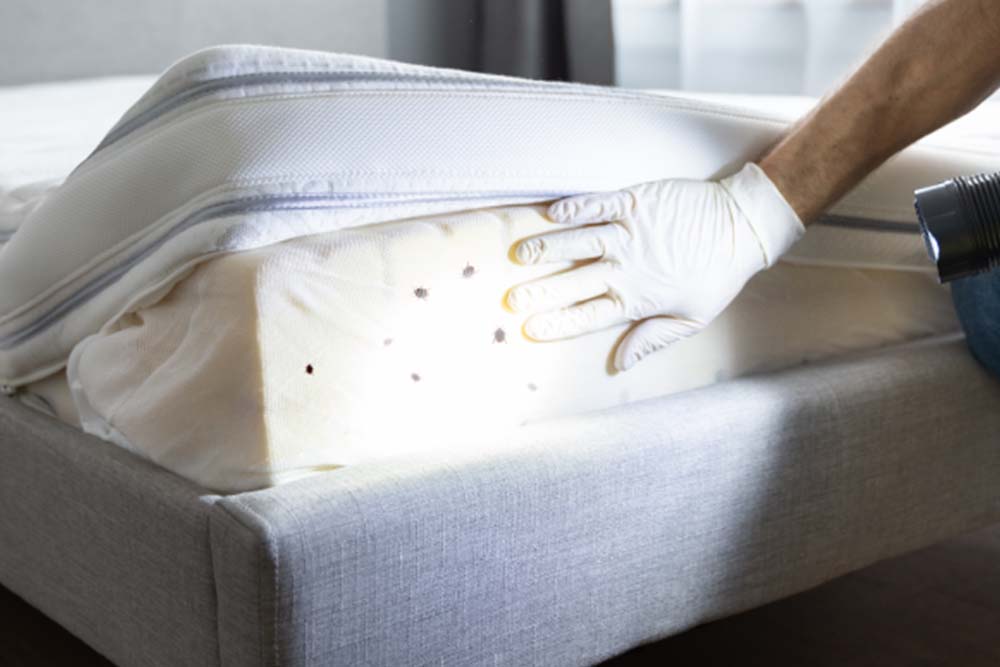What Hotels Can Do to Monitor Pests in Outdoor Spaces
Share
Hotels, with their sprawling gardens, inviting patios, and picturesque landscapes, are naturally inclined to offer outdoor spaces that attract guests. However, these outdoor areas can also be a haven for pests. To maintain a seamless guest experience and uphold their brand reputation, hotels need to be vigilant about monitoring and managing pests in these outdoor settings. This article explores what hotels can do to monitor pests in outdoor spaces effectively.

The Importance of Pest Monitoring in Hotels
Pests are more than just a nuisance; they can pose serious health risks to guests and staff. For hotels, which thrive on providing impeccable service and comfort, the presence of pests can be detrimental. Guests expect a clean, safe environment, and any sighting of pests can lead to negative reviews and a tarnished reputation. Therefore, understanding hotel pest control strategies is crucial for maintaining high standards.
Identifying Common Outdoor Pests
Before implementing pest monitoring strategies, it is essential to identify the types of pests that are commonly found in hotel outdoor spaces. These may include mosquitoes, rodents, ants, and even larger animals like raccoons. Understanding the behavior and habitats of these pests can help in devising more targeted monitoring and control measures.
Mosquitoes: A Common Nuisance
Mosquitoes are not only annoying but can also be carriers of diseases. Hotels with pools or water features are especially susceptible to mosquito infestations. It is important to regularly check these areas and implement measures like installing mosquito traps or using natural repellents.
Rodents: A Hidden Threat
Rodents are another common pest in hotel outdoor spaces. They can carry diseases and cause damage to property. Regular inspections of the premises, especially areas with dense vegetation, can help in early detection and management. For more on rodent control, check out rodent control in grain storage.
Implementing Integrated Pest Management (IPM)
One of the most effective approaches for monitoring and controlling pests is Integrated Pest Management (IPM). This strategy involves a combination of practices that focus on long-term prevention and pest control. It includes regular monitoring, identifying pests, and determining the most effective control measures with minimal impact on the environment.
Regular Monitoring and Inspection
Regular inspections are a cornerstone of effective pest management. Trained staff should conduct routine checks of outdoor areas, identifying any signs of infestation early on. This proactive approach helps in addressing issues before they escalate.
Utilizing Advanced Technology
With advancements in technology, hotels can now use sophisticated tools for pest monitoring. From motion sensors that detect rodents to digital traps that provide real-time data, technology can significantly enhance pest management efforts. For more insights, read about monitoring mice in hotels.
Training Staff and Raising Awareness
Staff training is crucial in maintaining an effective pest control program. Employees should be educated about the types of pests, signs of infestation, and appropriate reporting procedures. This not only empowers staff but also ensures that pest issues are identified and addressed promptly.
Guest Awareness and Communication
Besides staff, guests should also be informed about the hotel's pest control measures. Signage in outdoor areas can educate guests on how to prevent attracting pests, such as not leaving food uncovered. Open communication reassures guests of the hotel's commitment to a pest-free environment.
Partnering with Professional Pest Control Services
While hotels can manage some aspects of pest control internally, partnering with professional pest control services can provide a more robust solution. These experts offer specialized knowledge and tools to handle infestations effectively. Learn more about professional services at Sprague Pest Control.
Long-Term Pest Control Strategies
Professional services can also assist in developing long-term strategies tailored to the hotel's specific needs. This includes regular assessments, preventive treatments, and emergency response plans for unforeseen infestations.
Conclusion: Maintaining a Pest-Free Outdoor Space
For hotels, ensuring a pest-free outdoor space is integral to providing a comfortable and safe environment for guests. By implementing comprehensive monitoring strategies, utilizing technology, training staff, and partnering with professionals, hotels can effectively manage and prevent pest issues. As a result, they can uphold their reputation and continue to offer exceptional experiences to their guests.

FAQ Section
How often should hotels conduct pest inspections?
Hotels should conduct pest inspections at least quarterly, but monthly inspections are recommended for high-risk areas.
What are some natural pest repellents hotels can use?
Hotels can use essential oils like peppermint, lavender, and eucalyptus as natural pest repellents in outdoor spaces.
Can pest control measures affect the guest experience?
When done correctly, pest control measures should not interfere with the guest experience. Transparent communication helps reassure guests.
